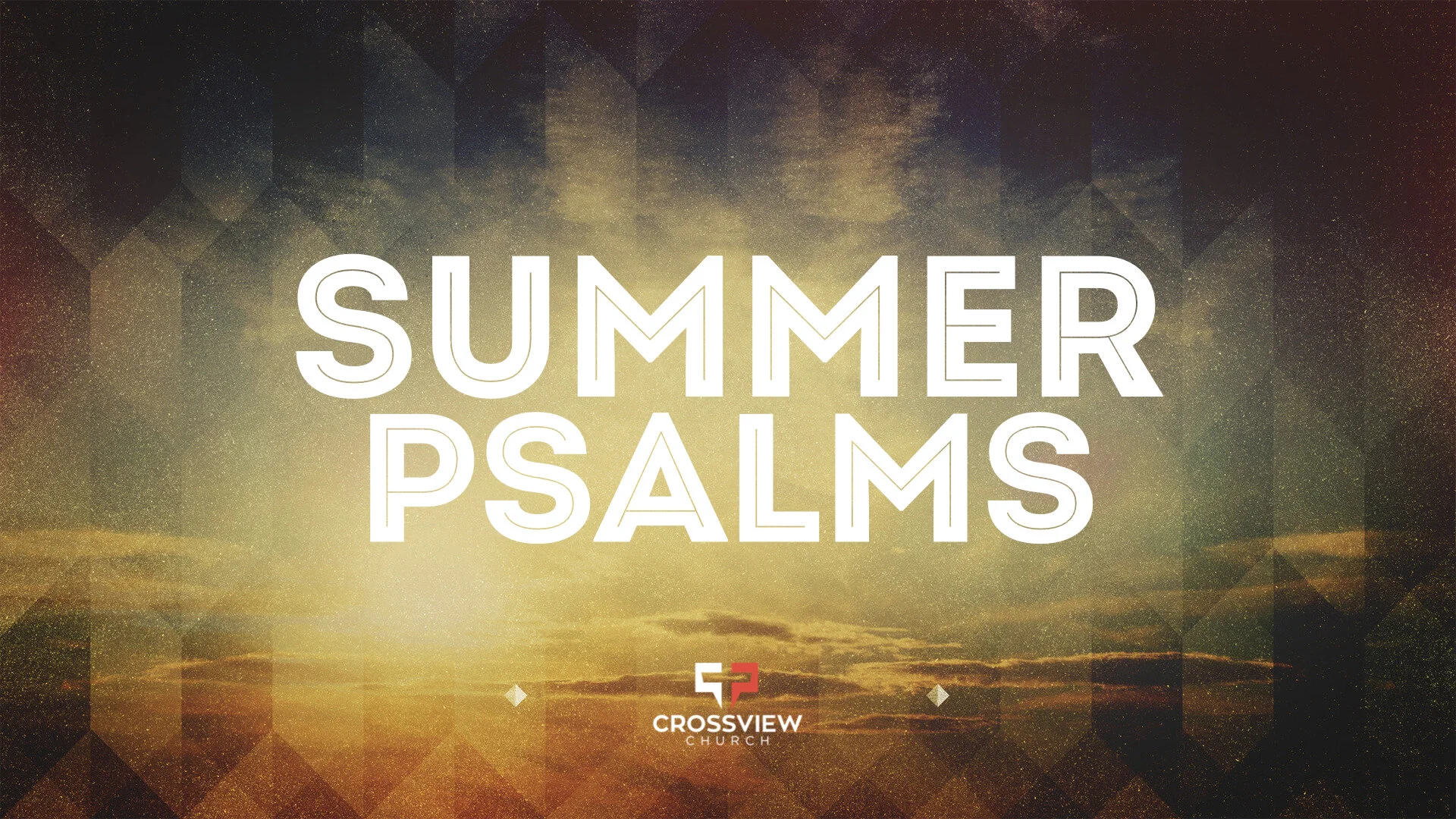“The Psalms have a unique place in the Bible because [whereas] most of Scripture speaks to us, the Psalms speak for us.”
Have you ever read the bible and thought to yourself, "You can't say that to God?!" I have. I like it when I find in scripture human spirituality that closely matches my own experience. That's one of the reasons that the book of Pslams is essential in the bible. Not only is it an excellent repository of prayers, laments, praises, and more, but it authentically expresses a wide range of human interactions with God. Reading through the various interactions with God can help teach us that it's okay to come to God as we are and to tell God how it's going without having to worry about using the "right words."
For the next several weeks at CrossView, we will focus our teaching on the book of Pslams; we are calling it our Summer Psalms Series. I read a quote this past week from a well-known early church father named Athanasius about the Psalms. He writes, "The Psalms have a unique place in the Bible because [whereas] most of Scripture speaks to us, the Psalms speak for us." As we begin these next weeks looking at a few of the Psalms, my encouragement for you is to allow the words of the Psalms to sink into your soul. Let the Psalmists put words to your frustration, your joy, or even your despair. Draw strength from their faith, find hope in their confidence, and maybe even let the Psalmists pray for you. As Dr. Sandra Richter writes, "[We need to] learn again that the Lord of heaven and earth has never ceased and will never cease to hear the cries of his people." So, one way the Psalms are important is in how they express authentic human interaction with God. Another vital aspect to the Pslams, historically speaking, is that this book has been, and is today, a primary means of the worship of God.
One of the best ways to think of the book of Psalms is as a hymn book of ancient Israel. The book of Psalms was gathered together as a book of praise for a purpose. Let's think for a moment about what a hymn book is, mainly because most churches today don't regularly use a hymnbook any longer. A hymnal is a collection of material, into one single text, of everything that a congregation needs to worship as a congregation. This material is then organized so that individuals and communities can easily use it for its intended purpose. The book of Pslams operates the same way.
Let me give you a few examples of how this works using songs and language we might know today. There are certain songs we play at certain times of the year. For example, the song "O Little Town of Bethlehem" is played during what time of year? The Avent and Christmas Season. When you hear that song, if you weren't already paying attention, you'd instantly know what time of year it is.
Here is another example. If you hear the words, "Dearly Beloved, we're gathered together in the presence of God to witness and bless the joining together of ...(I don't think I need to go on), we immediately recognize this language as belonging to a wedding ceremony!
The Psalms work similarly for the people of Isreal. Not only do the Pslams express their authentic interactions with God, but the ancient community of faith used the Psalms to anchor and orient various seasons, practices, and moments of their life toward God. The fantastic thing is, we can still do this in our community of faith today. When you hold the book of Pslams in your hand, you are holding the book that facilitated Israel's worship for over a thousand years; that's amazing.
This Sunday, as we start our sermon series on the Pslams, my encouragement to you is to dive into this beautiful book. Read along and even explore on your own. Be inspired. Let God speak to you, and the Psalms speak for you. Let the words you read anchor and orient your life toward the creator of all things and our Lord and Savior. This week we start with Psalm 8 - it's a powerful Psalm, and it's only nine verses long! Have fun.


